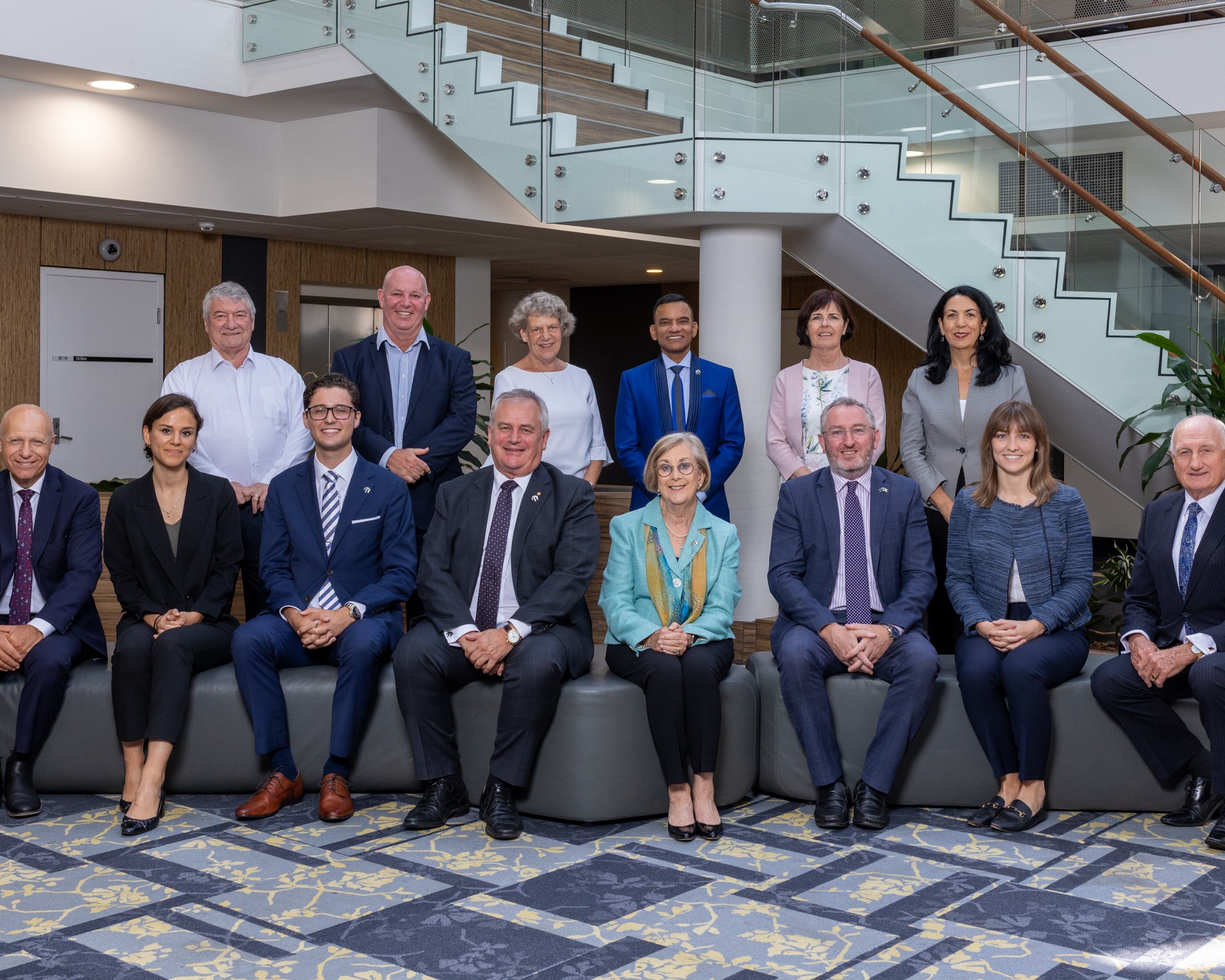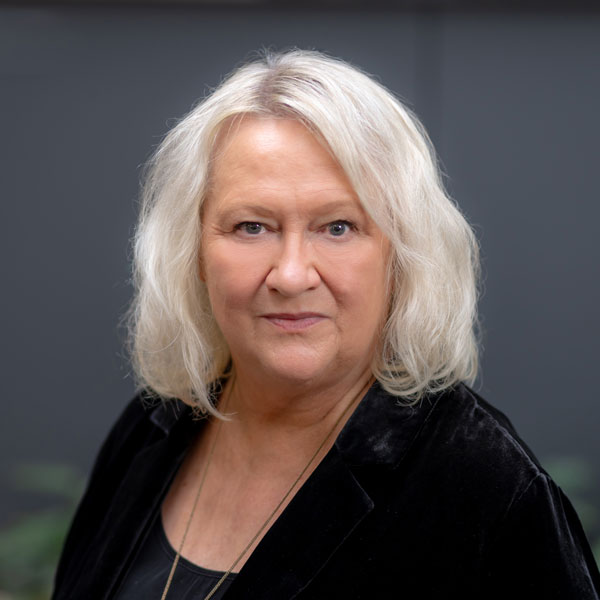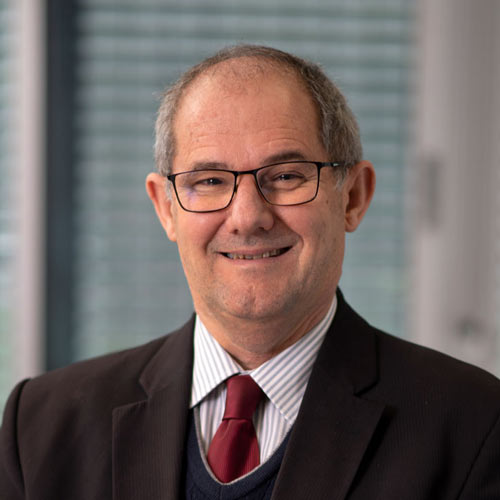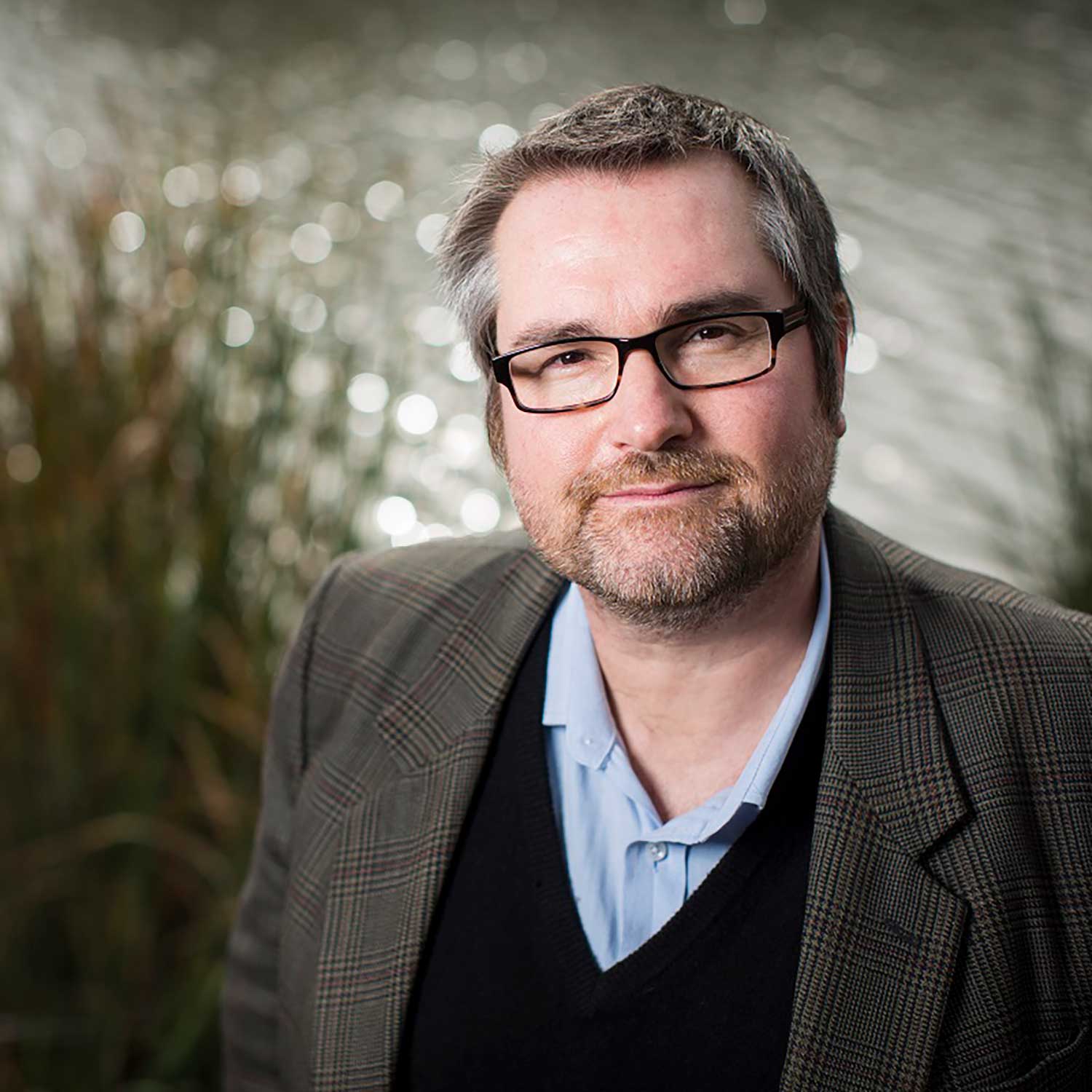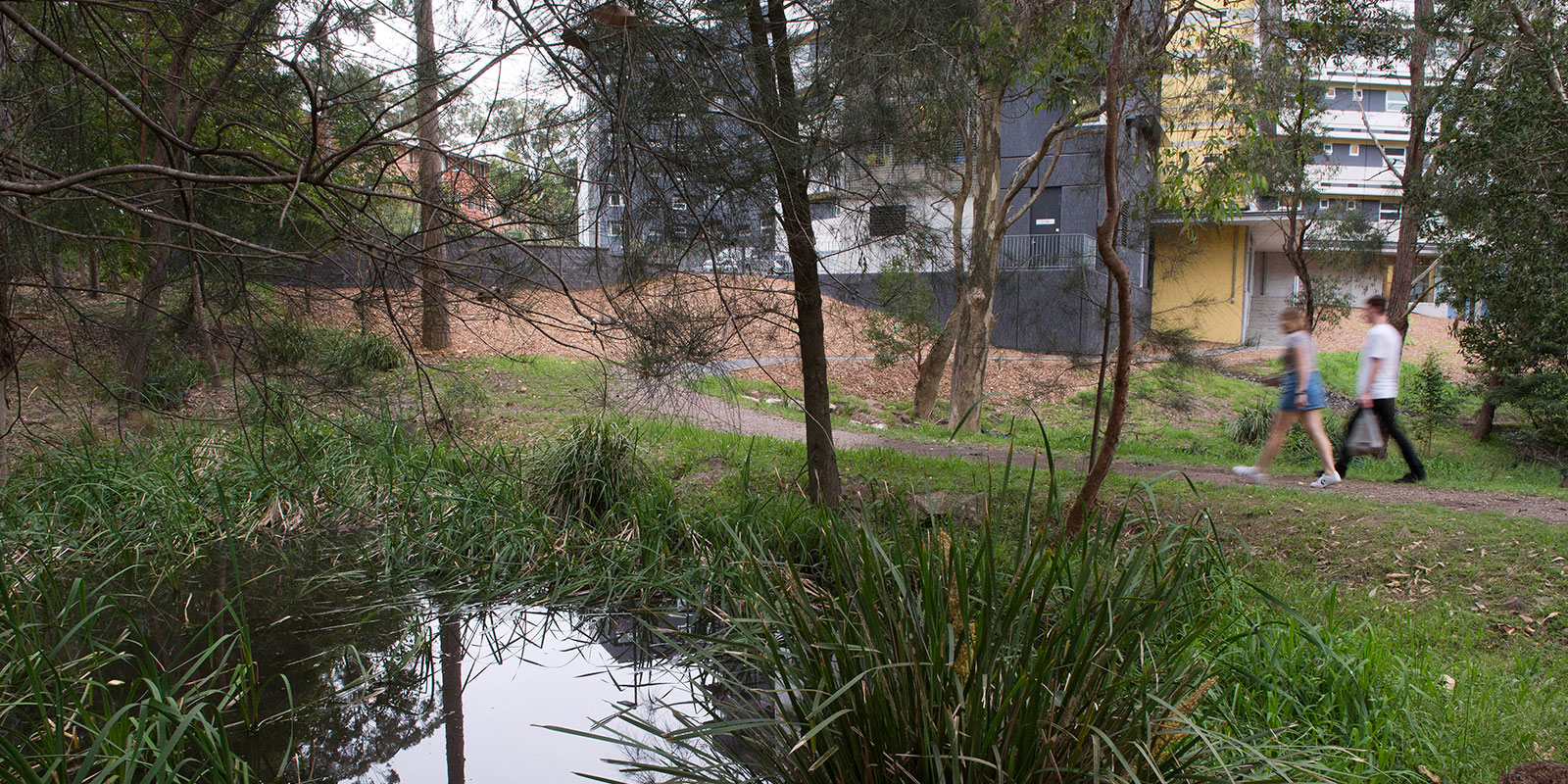
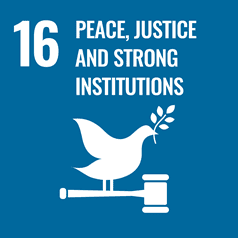
Goal 16:
Peace, Justice and Strong Institutions
Participatory Bodies for Stakeholder Engagement
The University of Newcastle as a body ensures that local stakeholders in the University, including local residents, local government, and civil society representatives have a meaningful mechanism or for participating in University decision making through governance frameworks.
Examples include the University Council, the Law and Justice Advisory Board, the NEIR Advisory Board and many others. These provide formal, structured mechanisms by which external local stakeholders, sector experts, and community representatives can engage in shaping research strategy, priorities, and operations. This ensures that local, regional, industry and other civil society voices are incorporated in decision‑making, aligning university activity with community, environmental, and economic needs.
University Council
Council is the University's most senior decision-making body responsible for the oversight, management and development of strategic plans and key policies. Council monitors the overall performance and accountability of the organisation and is subject to standards of corporate governance.
The Council Charter sets out the role and responsibilities of the Council and its members, the responsibilities delegated to committees or management, as well as the membership and the operation of the Council. Find out more about Council.
See how this participation worked in practice in 2024:
- Membership Composition Includes External & Community‑Expert Members
- The Council includes appointed members—some appointed by the NSW Minister, others by the Council itself—who are external to the University (i.e. not academic or administrative staff or students).
- These external members bring expertise in areas such as governance, community service, industry, health, infrastructure, business, etc. For example: Ms Liz Nicol, who has experience in community services and health; and Mr Noel Cornish AM with business and resource industry credentials.
- Elected Student and Staff Representation
- The Council has two elected student members (one undergraduate, one postgraduate).
- It also includes elected academic and non‑academic (staff) members, representing internal stakeholders.
- Policy & Charter Provisions for Independence and Diversity
- The Council Charter and By‑law require a diversity of skills and background, financial/commercial expertise, and that a majority of Council members are external members.
- The Charter also outlines roles, responsibilities, expectations of independence, conflict of interest, and more.
- Formal Procedures & Legal Frameworks
- The University Council operates under the University of Newcastle Act 1989 and the University of Newcastle By‑law 2017. These legislative instruments establish how members are appointed, what the Council’s powers are, and how governance is to be conducted.
- The Council also has a Handbook and a Charter that set out its meeting procedures, membership obligations, and governance standards.
Meet our Council Members
Get to know your Council members a little better. Learn more about each member's role, their industry experience and why they joined Council.
Standing Committees of Council
The University has various committees which are outlined in the committee structure. Council has a number of standing committees that meet regularly and are skills-based bodies designed to deal with specific matters.
The committees are Chancellor's Committee, Finance and Infrastructure Committee, Nominations and Governance Committee, People and Culture Committee, and the Risk Committee.
Law and Justice Advisory Board
The University of Newcastle School of Law and Justice's advisory board brings together the specialist knowledge and legal professional practice expertise of a highly skilled and diverse group.
Here are the ways that the Advisory Board provided participation for external stakeholders in 2024:
- Diverse Stakeholder Membership
- The Board includes members of the judiciary, lawyers from local and global law firms, legal practitioners from government bodies, members of community legal centres, members of the local Bar Association, and also sole practitioners.
- For example, Bronwyn Ambrogetti, Managing Solicitor of the Hunter Community Legal Centre, is a member; this centre provides free legal services to vulnerable and disadvantaged people in the Hunter Region.
- Formal Structure and Terms
- Meetings are held three times per year. The Board also has sub‑committees that work on special strategic areas such as equity & diversity, professionalism, and promotion & funding. These sub‑committees work between full Board meetings to bring strategic input to the School’s objectives.
- Members typically serve an initial two‑year term, after which renewal or replacement is possible, allowing for continuity but also turnover of community‑expert voices.
- Open Participation and Transparency
- Advisory Board meetings are open to all School staff, and from time-to-time guest invitees attend. This increases transparency and ensures that internal and external community perspectives are present.
- Strategic Influence on Decision‑Making
- The Board’s sub‑committees provide strategic advice that is aligned with external expectations and community needs (such as access to justice, equity, professional standards). These inputs help shape school priorities around curriculum, clinical legal education, community legal work, staff & student equity, and external engagement.
School of Law and Justice Advisory Board
Bronwyn Ambrogetti is the Managing Solicitor of the Hunter Community Legal Centre, a community legal centre based in Newcastle, providing free legal services to vulnerable and disadvantaged people in the Hunter Region of NSW. Bronwyn is committed to improving access to justice for vulnerable people. She has worked in community legal services including the Aboriginal Legal Service, the Intellectual Disability Rights Service and the Hunter Community Legal Centre. Bronwyn has a special interest in legal education. She is a member of the Global Alliance for Justice Education and convenes the Community Legal Education Workers group at CLCNSW which focuses on community based legal education. In 2018 Bronwyn was an International Clinician in Residence at Taungyi and Myitkyina Universities in Myanmar. Bronwyn is on the Board of the Newcastle Women Lawyers Association and Catapult Dance.
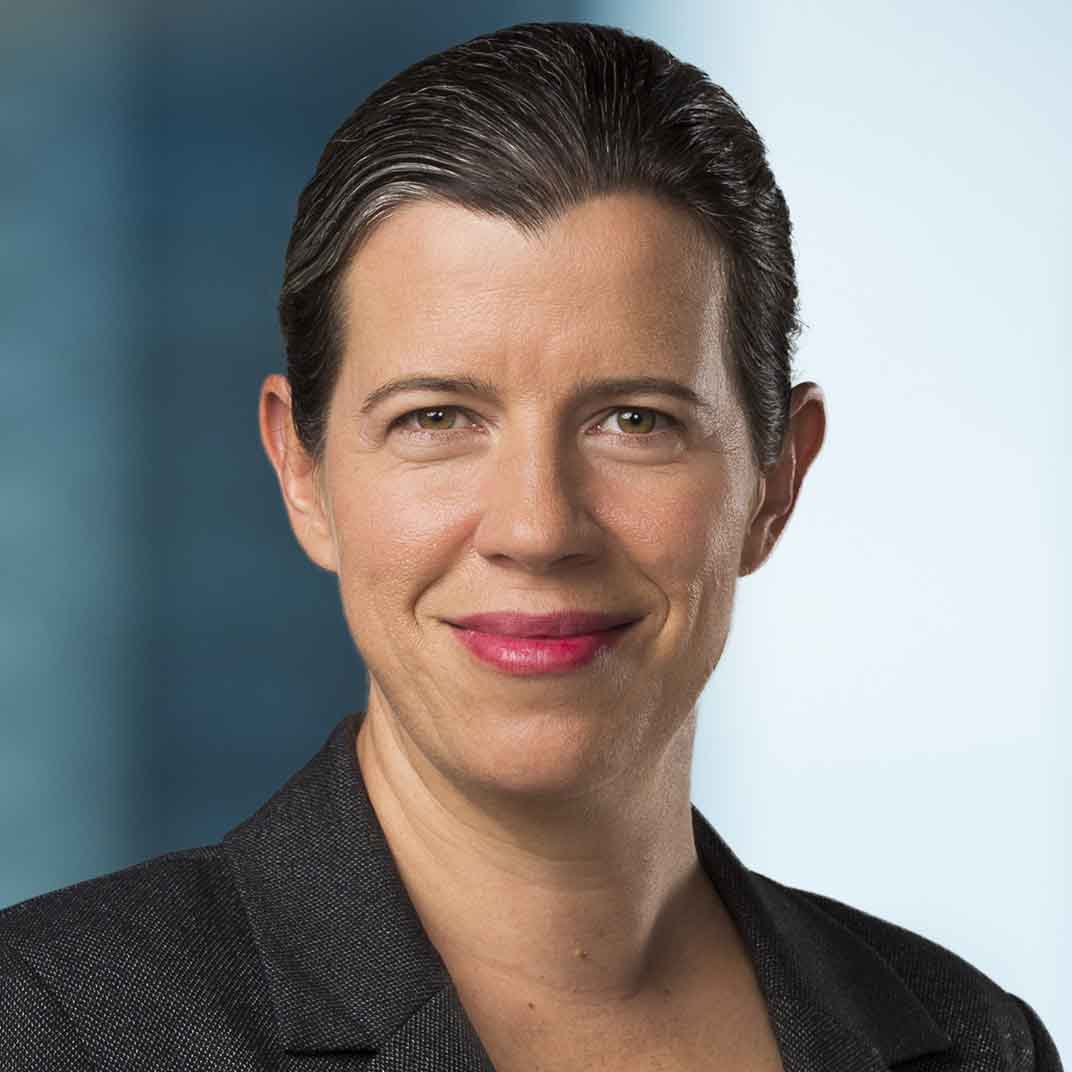 Lauren is a Senior Trade Mark Counsel at Davies Collison Cave with more than fifteen years’ experience in intellectual property law, focusing on trade mark prosecution, advisory, clearance and enforcement work. She has handled large trade mark portfolios in Australia and overseas for a variety of businesses from start-ups through to large corporates, including across Internet service and Internet retail, food, cosmetics, fashion, software, technology, transport, tourism and health industries and for government clients. Lauren also has experience in product design matters, copyright, trade practices, trading names and domain names. She works in Davies Collison Cave’s Newcastle and Sydney offices.
Lauren is a Senior Trade Mark Counsel at Davies Collison Cave with more than fifteen years’ experience in intellectual property law, focusing on trade mark prosecution, advisory, clearance and enforcement work. She has handled large trade mark portfolios in Australia and overseas for a variety of businesses from start-ups through to large corporates, including across Internet service and Internet retail, food, cosmetics, fashion, software, technology, transport, tourism and health industries and for government clients. Lauren also has experience in product design matters, copyright, trade practices, trading names and domain names. She works in Davies Collison Cave’s Newcastle and Sydney offices.
Lauren studied a Bachelor of Laws (Hons) at the University of Newcastle and a Master of Laws at the Queen Mary and Westfield College of the University of London. She is pleased to continue to be engaged with the University of Newcastle, including in relation to I2N and as a VMS mentor, and on the Law School Advisory Board.
Craig owns and operates his own Legal Practice in the Adamstown area.
Advocating for the interests of Aboriginal people has been an abiding interest for Craig Eade since he was a law student at the University of Newcastle. Craig's passion for equity, initiated a successful campaign to establish the inaugural position of Indigenous Representative on the University of Newcastle Law Students’ Association Committee. His passion for Aboriginal people continued during his internship at the Administrative Appeals Tribunal (AAT), where he authored the policy guideline now used by AAT employees working with Aboriginal people. His high-level performance and devotion to his Aboriginal values during his cadetship at Legal Aid enabled him to obtain a position as a solicitor at Legal Aid’s Newcastle Office, where he then implemented the Indigenous Placement Program. Craig continues to advocate for Aboriginal people as well as those who might be regarded as disadvantaged and vulnerable, in both policy and legal aspects as a legal practitioner.
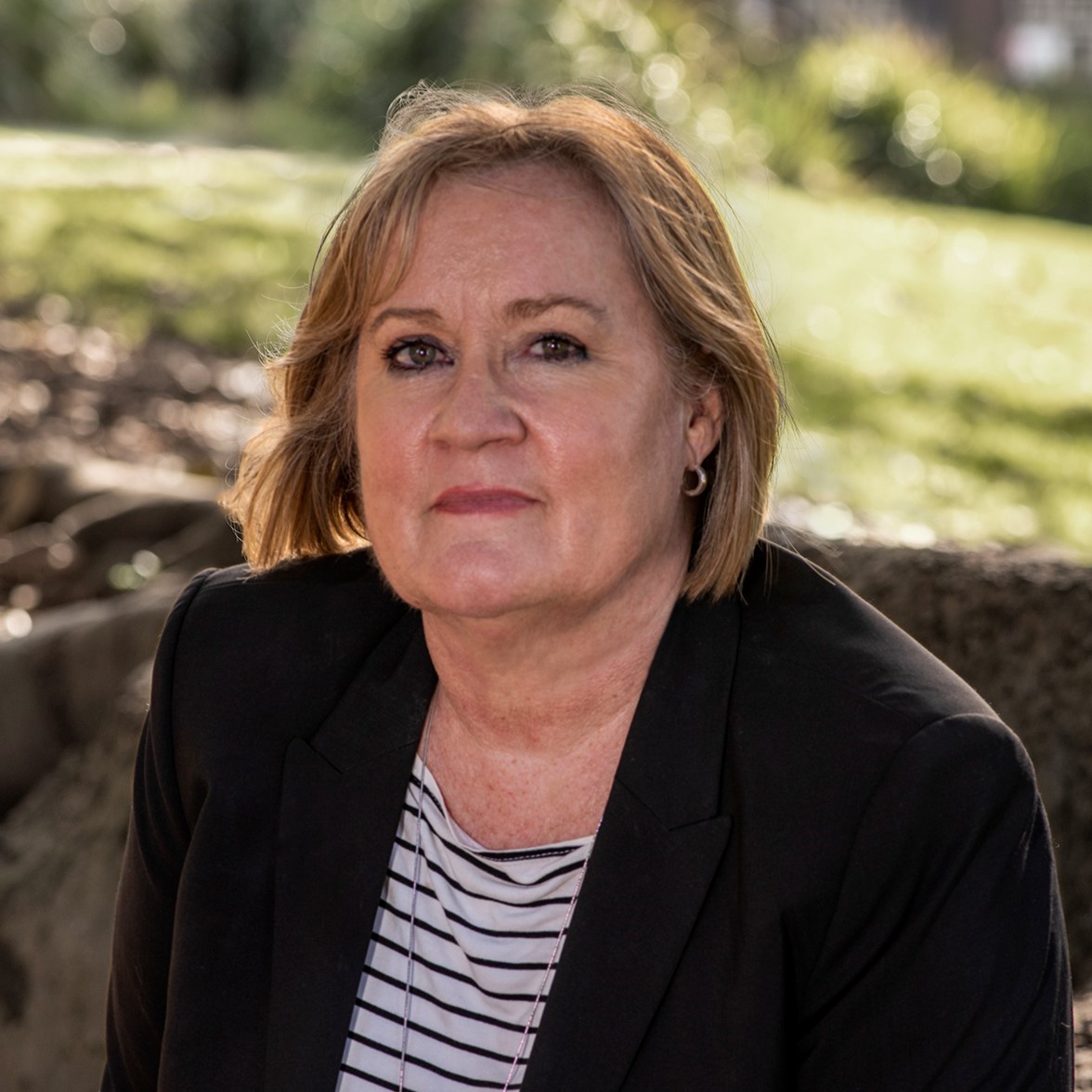 Catherine Henry is the principal of Catherine Henry Lawyers – a mid sized legal practice in Newcastle’s CBD. She has specialised in health and medical law for over 30 years. In that time, she has successfully handled many hundreds of claims for injured plaintiffs and worked on some of Australia’s highest profile cases. She employs a team of six specialist health lawyers at the firm who conduct litigation and a diverse range of health law matters including a large practice in the health disciplinary area acting for allied health professionals including pharmacists, nurses, psychologists and dentists. Catherine has also been a legal member of boards of inquiry hearing complaints against pharmacists and has been a part legal member of the Mental Health Review Tribunal. The firm also acts in family law and has a growing presence in estate and elder law. Catherine has become a national expert in the area of aged care litigation – primarily in litigation against aged care facilities. As the national spokesperson for the Australian Lawyers Alliance on aged care and elder law, she believes that litigation has been shown to play a positive role in improving standards of health care. Catherine has been a casual lecturer at UON Law School in the past – and has taught torts and civil procedure. She was a member of the University Council for a 3 year term from 2005 and is so honoured again to be able to contribute to the great work done at the UON Law School. a member of the Hunter Reference Group on Potential Elder Abuse.
Catherine Henry is the principal of Catherine Henry Lawyers – a mid sized legal practice in Newcastle’s CBD. She has specialised in health and medical law for over 30 years. In that time, she has successfully handled many hundreds of claims for injured plaintiffs and worked on some of Australia’s highest profile cases. She employs a team of six specialist health lawyers at the firm who conduct litigation and a diverse range of health law matters including a large practice in the health disciplinary area acting for allied health professionals including pharmacists, nurses, psychologists and dentists. Catherine has also been a legal member of boards of inquiry hearing complaints against pharmacists and has been a part legal member of the Mental Health Review Tribunal. The firm also acts in family law and has a growing presence in estate and elder law. Catherine has become a national expert in the area of aged care litigation – primarily in litigation against aged care facilities. As the national spokesperson for the Australian Lawyers Alliance on aged care and elder law, she believes that litigation has been shown to play a positive role in improving standards of health care. Catherine has been a casual lecturer at UON Law School in the past – and has taught torts and civil procedure. She was a member of the University Council for a 3 year term from 2005 and is so honoured again to be able to contribute to the great work done at the UON Law School. a member of the Hunter Reference Group on Potential Elder Abuse.
 Elizabeth is a specialise local lawyer with over fifteen years experience in complex property matters, native title and clean energy law including as a principal of a leading boutique Newcastle law firm. She has worked with Indigenous communities and organisations across the country on land agreements and development matters. In 2019, she was awarded an Australian Government Endeavour Executive Leadership Award which gave her the opportunity to develop her expertise in clean energy law by visiting specialists at Berkeley Law, Yale Law and the Vermont Law School Institute for Energy & the Environment. She is very pleased she managed to squeeze that trip in back when overseas travel was still a thing.
Elizabeth is a specialise local lawyer with over fifteen years experience in complex property matters, native title and clean energy law including as a principal of a leading boutique Newcastle law firm. She has worked with Indigenous communities and organisations across the country on land agreements and development matters. In 2019, she was awarded an Australian Government Endeavour Executive Leadership Award which gave her the opportunity to develop her expertise in clean energy law by visiting specialists at Berkeley Law, Yale Law and the Vermont Law School Institute for Energy & the Environment. She is very pleased she managed to squeeze that trip in back when overseas travel was still a thing.
Geoff Mulherin CSC is the Director of the Law and Justice Foundation of NSW, an independent statutory body, which is globally recognised for its work to identify the legal and access to justice needs of the community, what ‘works’ to address those needs, and to support the planning and delivery of appropriate and cost-effective legal services to the community.
Geoff is a Director of the Pro Bono Disbursement Fund, and a member of the NSW Legal Assistance Forum and of the Legal Information Access Centre of the State Library of NSW. His research interests include the planning and delivery of legal services in rural regional remote areas of NSW, and has a growing personal interest in the Hunter region.
Daniel is an experienced insurance lawyer with close to 20 years advising clients on insurance litigation. He specialises in catastrophic claims, indemnity issues, fraudulent and complex economic loss claims. He has particular expertise in compulsory third party claims, public liability claims, property damage recovery actions, and defending section 151Z recovery actions. Daniel is well known for his pragmatic approach to claims, his advocacy and his technical knowledge. He advises large national insurers and self-insured corporates. Daniel has acted for insurers in many leading decisions in the Court of Appeal and also regularly manages special projects for insurers. He is also a sought after speaker with respect to claims management issues.
Warwick Tregilgas was admitted as a Barrister in November 1987. He practices almost exclusively in family law, both parenting and financial matters, with some appellant appearances in the Full Court of the Family Court of Australia. He regularly attend as counsel in conciliation conferences, mediations and arbitrations. Mr Tregilgas is a qualified Arbitrator and will hopefully become a Mediator later this year. Mr Tregilgas regularly presents papers to professional associations such as the Bar Association of NSW, the Law Society of NSW and the local Family Law Practitioner’s Association. In 2020 these have been:
“Mediations – Family Law – Learning to Dance. Again.”
“Running Hearings via Teams – Never Let a Good Crisis go to Waste.”
He has appeared as counsel in the following reported cases:
- Watkins & Watkins (reopening and further evidence on appeals) (2004) FamCA 381
- Welch & Abney (superannuation and financial resources) (2016) FamCAFC 271
- Pawley & Pawley (No 2) Interim relocation) (2017) FamCAFC 136
- Dalton & Dalton (conflict of interest) (2017) FamCAFC 78
He has a special interest in advocacy in complex trials.
Tina has extensive experience in:
- Drafting and negotiating commercial contracts, including asset and share purchase and sale agreements, joint venture, supply, distribution, sales, services, funding and licensing agreements and associated intellectual property requirements
- Advising on key risks in commercial contracts and contract administration including PPSA
- Advising on governance issues, including GIPA and privacy
- Advising on competition law issues.
With two decades’ experience, Tina’s clients span all public and private sector industries. She has acted for organisations in the finance, insurance, health, manufacturing, mining, property, business and professional services sectors, as well as various government entities. Tina has particular expertise in competition law from her early career experience as Assistant Director at the Australian Competition and Consumer Commission, where she managed large-scale litigation involving breaches of the anti-competitive provisions of competition law by professionals. Tina is admitted to practise in the Supreme Court of NSW and the High Court of Australia.
Tina’s expertise is across a vast array of commercial law issues and transactions. Her work includes preparing and negotiating a variety of commercial contracts, including buy / sell agreements, joint venture agreements, services agreements, development agreements, and conducting purchaser / vendor due diligence. She also has specific experience advising on governance compliance and risk issues (including on privacy laws), mergers and acquisitions, intellectual property requirements and associated claims, and complex corporate structuring and restructurings. In 2022 she was appointed to the University of Newcastle’s School of Law and Justice Advisory Board and in 2023 appointed to the University of Newcastle’s College of Human and Social Futures Industry Working Group.
Emma is an experienced workplace lawyer who advises on employment and work health and safety (WHS) issues for clients in diverse sectors, including mining, transport, financial services, insurance, health care and government. Emma considers broader organisational objectives when guiding clients through difficult situations, ranging from internal investigations and disciplinary matters to unfair dismissal and general protections claims. She also helps clients with enterprise bargaining, terms and conditions of employment and organisational restructures. Emma helps improve workplace safety by developing WHS policies and procedures, advising on legislative compliance and devising practical training. Emma also helps clients respond to regulator investigations into potential breaches of WHS and employment laws.
NEIR Advisory Board
- External Members
The NIER Advisory Board is a cooperative network comprising industry sector representatives as well as University executives.
Some members are from non‑government organisations, research institutes, non‑profits, or private industry, bringing external perspectives. For example, the Board includes the Managing Director of Food Innovation Australia Ltd (a non‑profit), water industry professionals, and senior executives in environmental, energy & resource sectors. - Governance Structures Beyond the Advisory Board
NIER’s governance includes several layers: the Advisory Board, a Management Committee, a Research Leadership Committee, and various Steering Committees (e.g. for space, infrastructure, health & safety). These provide additional and more operational mechanisms for external and internal stakeholders to have input. - Alignment with Local / Sector Priorities
The Advisory Board plays an instrumental role in initiating and shaping research strategy aligned to sector priorities, guiding performance objectives and operational plans, and advising on trends, emerging issues, and stakeholder expectations. This ensures that decisions are not made in isolation, but with ongoing external input. - Local Engagement
Many Advisory Board members are from locally relevant sectors (e.g. engineering, water utilities, energy providers) that have direct impact on the region; this means the advice comes from people who understand local needs, environmental conditions, infrastructure, and more.
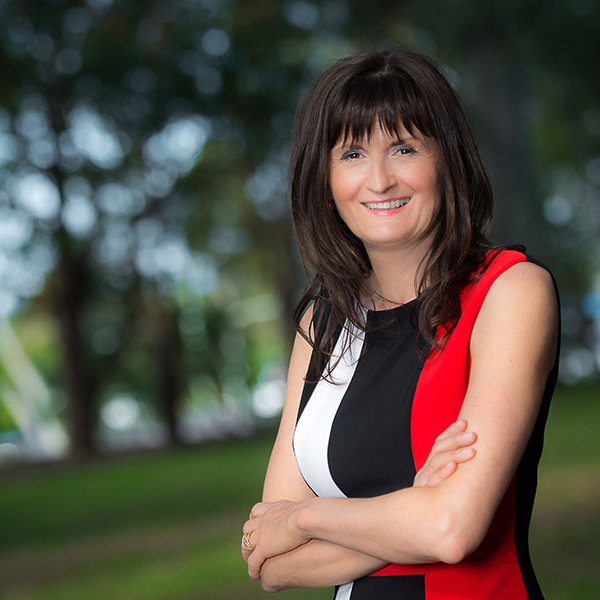
Dr Mirjana Prica
Managing Director
Food Innovation Australia Ltd
A trained scientist with a doctorate in physical chemistry, Dr Prica has a wide-range of national and international experience in research and executive roles working with private enterprise, not-for-profit and research institutions.
Now Managing Director of Food Innovation Australia Limited (FIAL), a not-for-profit organisation established under the Federal Government’s Industry Growth Centres Initiative, Dr Prica previously worked with multi-national organisations including George Weston Foods, Associated British Foods and CSIRO.
In her current position, Dr Prica is responsible for identifying, developing and leading the strategic vision for the Australian food and agribusiness industry to facilitate sector growth, build capability and foster connections and collaborations between stakeholders.
In 2016, in celebration of the innovations occurring across the industry, Dr Prica published a book that profiled 50 Australian companies that had launched new products within the sector in 2014.
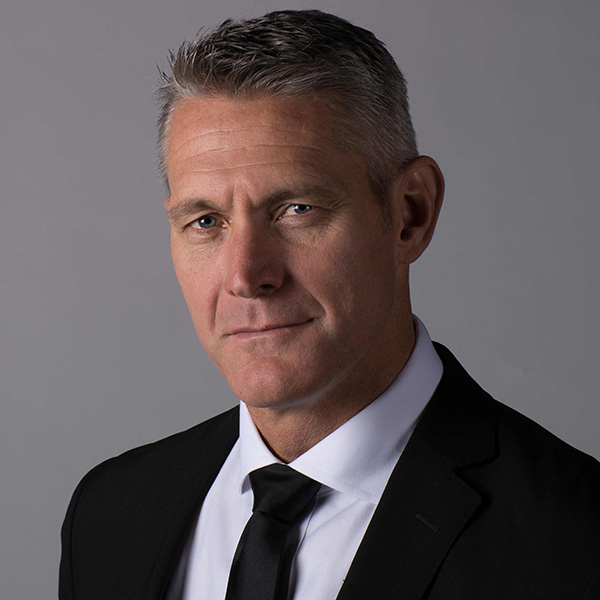
Mr Rod Naylor
National Water Lead
GHD
Mr Naylor is an accomplished water and environment professional with over 30 years’ experience in the water industry throughout Australia, New Zealand, the UK and the USA. Mr Naylor holds an Honours Degree in Chemical Engineering and a Masters Degree in Business Administration and is a Chartered Engineer with the Engineering Council UK, a graduate of the Institute of Company Directors Australia, a member of the Chartered Institution of Water and Environmental Management and the Institution of Engineers Australia.
As Australian Market Leader for Water at engineering company GHD, Mr Naylor leads GHD's Australian water market activities, coordinating and developing the national GHD presence and capabilities in the water industry.
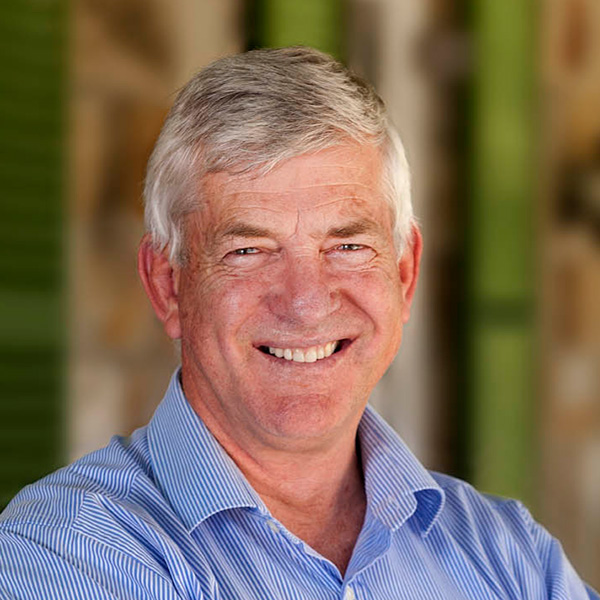
Mr John Richards
Chairman
Bloomfield Group
Mr Richards commenced with Australian owned Bloomfield Group in 2002 and was appointed as Managing Director and Chief Executive Officer in 2010 prior to his appointment as Chairman in 2016.
Located in East Maitland NSW, Bloomfield Group began operations in 1937 and has grown to employ more than 500 staff across two open cut collieries in the Hunter Region.
The organisation has since expanded operations to include multiple engineering businesses; Four Mile Engineering at East Maitland and Kings Engineering which is co-located in Rutherford and Lithgow NSW.
Mr Richards is the Director of ACA Low Emissions Technologies Limited and also holds the position of Chair of the NSW Minerals Council Upper Hunter Mining Dialogue Executive Oversight Committee.
Mr Richards is a member of the Coal Forum of the Minerals Councils of Australia, the Institute of Company Directors, the NSW Minerals Council Executive Committee, Coal Innovation NSW and is a former Director of Port Waratah Coal Services.

Ms Louise Cordina
Chief Executive Officer
Cordina Group
Cordina Group is one of Australia’s oldest privately owned food businesses and top 100 family owned firms. Now in its fourth generation, Ms Cordina, has led the business through a period of changing consumer priorities and industry consolidation.
Originally joining the business full time in 1996, Ms Cordina has been a strong advocate for innovation, agility and finding opportunity through thinking differently in a volatile, competitive market place. Today, the business is widely recognised as a leader in innovative fresh food and is regularly recognised with national awards for products and partnerships.

Dr Peter Mayfield
Executive Director – Environment, Energy & Resources
CSIRO
Dr Mayfield has worked in research and development for more than 25 years in both industry and government sectors and has extensive experience in research management across the breadth of the environment, energy and resources domains. A qualified Chemical Engineer, Dr Mayfield completed a PhD in gas separations using adsorption technology at the University of Queensland prior to starting his career with BHP. Initially as a Research Engineer supporting the ironmaking Blast Furnace operations across all three BHP Steel works which subsequentially led to managing a number of laboratories along with pilot scale and plant based research facilities for new pyrometallurgical processing options for materials such as manganese, magnesium and ilmenite. His success in these roles provided Dr Mayfield with the opportunity to advance his management skills by implementing a number of research solutions across the company’s global businesses.
In 2001, Dr Mayfield took on the role of General Manager for the BHP Billiton Newcastle Technology Centre and continued in this position until 2010 when BHP Billiton moved to a decentralised research and development model. He then joined CSIRO as a Senior Research Manager and held multiple positions including Chief of Energy Technology followed by a promotion as Director of the Energy Business Unit where he played a significant role in shaping and implementing the CSIRO Energy Strategy. As a research leader with CSIRO Dr Mayfield has contributed to the development of new technologies for more efficient and sustainable use of coal, gas and oil as well as the integration of renewable technologies such as solar and wind by finding more efficient ways to generate, distribute and use energy.
In 2016 Dr Mayfield commenced as CSIRO’s Executive Director for Environment, Energy and Resources and is responsible for approximately 1400 researchers who aim to deliver new technological solutions to enhance the value of Australia’s vast energy and mineral resources while maintaining and enhancing the natural environment.
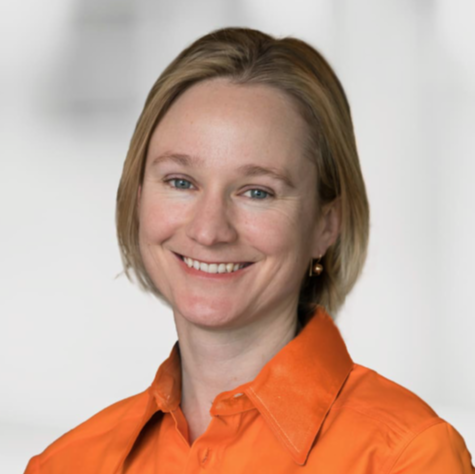
Ms Liz Watts
Vice President NSWEC
BHP
Liz has over 24 years experience in the mining industry in various technical, frontline leadership and corporate roles for Rio Tinto, Xstrata, Glencore and now BHP. Liz is a Hunter Valley local, born in Scone where most of her family still live, and holds a Bachelor of Mining Engineering, graduating with First Class Honours from the University of New SouthWales. Liz also holds a NSW Open Cut Examiners Certificate of Competency, a NSW Open Cut Mine Managers Certificate of Competency, a Queensland Senior Site Executive Ticket, a Masters of Business and is a Graduate of the Australian Company Directors.
In 2013, Liz was awarded the Inaugural NSWMC Outstanding Woman in Mining and the Australian Mining Prospect - Mining Woman of the Year.
On a part time basis Liz is completing a Doctorate in Sociology and Anthropology at the University of Newcastle focused on sustainable outcomes in mine closure. Her studies inform her in her current role - Vice President of BHP’s NSW Energy Coal. In this role Liz is focused on transitioning Mt Arthur Coal to closure in 2030, balancing social, economic and environmental outcomes.
In her downtime, you will find Liz on her farm in Tenterfield, spending time with her husband Duncan and their cattle dog Tank.
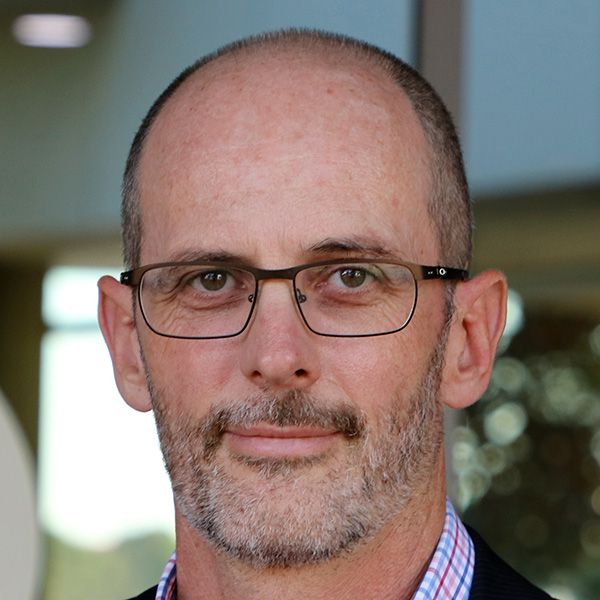
Mr Darren Cleary
Managing Director
Hunter Water
Mr Cleary has more than 20 years’ experience in the water utilities sector in roles focused on infrastructure planning, capital delivery and operations. At Hunter Water, Mr Cleary leads the service and infrastructure planning, investment, risk and innovation portfolios and delivery of the capital works programme for the provision of water, wastewater and recycled water services for over 500,000 customers across the Hunter.
Mr Cleary holds a Bachelor of Engineering & Environmental with Honours from the University of NSW and a Master of Engineering Management from the University of Technology Sydney.
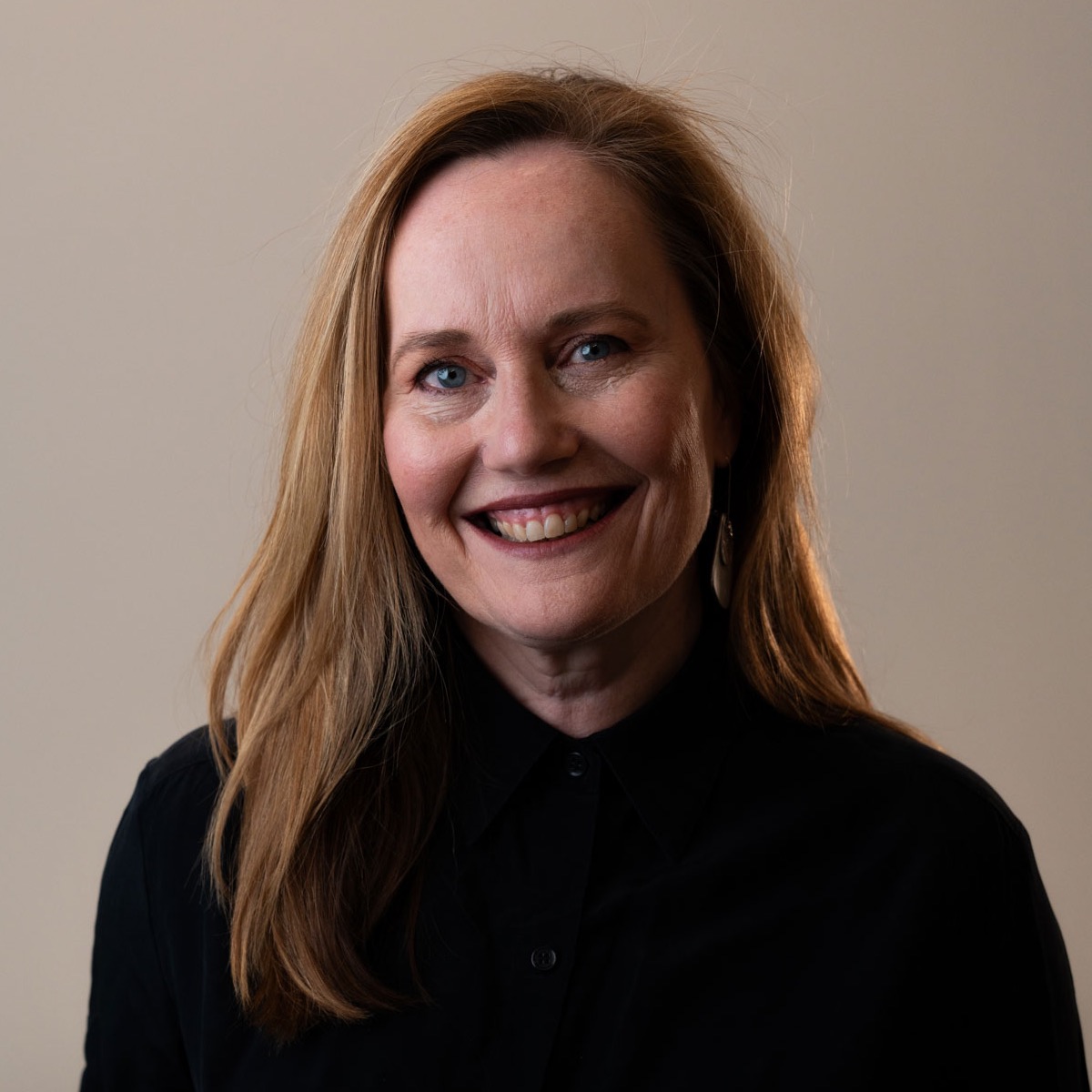
Ms Clare Larkin-Sykes
Managing Director
Forelight Advisory
Clare Larkin-Sykes is a leading advocate for change in the resources and energy sectors and aligns with organisations focussed on a clean energy future. She is an experienced mining engineer and strategist and has shaped her career to lead and collaborate across various complex multi-stakeholder initiatives.
Clare has directed a range of multi-stakeholder initiatives including resource technology and decarbonisation roadmaps, industry cluster development, economic development and technology scoping programs. She has worked across government and listed companies and brings with her an extensive industry network and a broad perspective on future resources and energy value chains.
Clare is co-lead of NewH2 – Hunter Hydrogen Technology Cluster and serves across several industry boards and committees including the Newcastle Institute of Energy & Resources (NIER) Advisory Board, the NSW Independent Planning Commission (IPC), the NSW Decarbonisation Innovation Hub and the Hunter Hydrogen Taskforce. She is the current Chair of Resources NSW (an initiative of NSW Energy & Resources Knowledge Hub - ERKH).
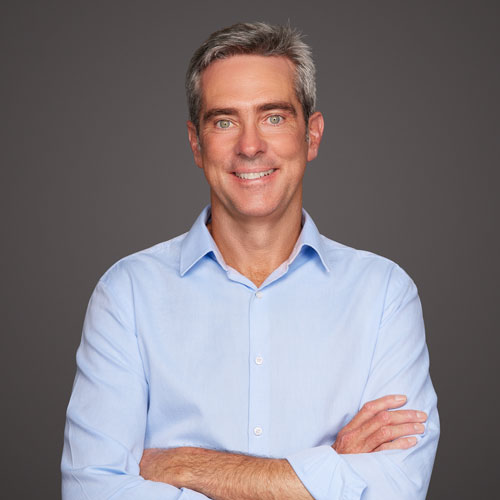
Mr Rob Cooper
Senior Manager Corporate Affairs
AGL Macquarie
Mr Cooper is a stakeholder engagement and communications specialist with over 25 years’ experience across a range of industries.
Working in the energy sector for the last 15 years, Mr Cooper was Communications Manager at the NSW State Owned Corporation Macquarie Generation, (Liddell and Bayswater power stations) for 10 years prior to acquisition of the business by AGL in 2014.
Mr Cooper has managed community relations, stakeholder engagement and communications activities at existing assets, new development sites and transition planning with the closure of Liddell power station in 2022-2023.
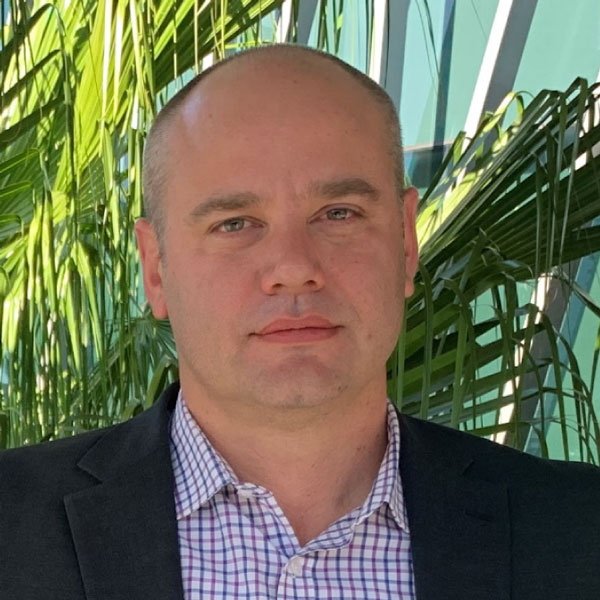
Mr Adrian Beer
Managing Director
AIX
Adrian brings over 30 years of experience in industrial technology. The former CEO of the Federal Government's Industry Growth Centre for Mining Equipment, Technology and Services (METS) sector, Adrian has a proven track record driving economic growth through the commercialisation of local innovation.
Prior to the Growth Centre, Adrian held global executive strategy roles within two of the world's largest industrial technology organizations. With a background in Electrical Engineering, Adrian has a broad range of experience across small to medium size technology companies and led large-scale global technology transformation programs.
Adrian has established the Australia Innovation Exchange (AIX) focused on supporting local technology companies as the vehicle to commercialise Australian innovation.

Mr Frank Sammut
Executive Director
Central Coast Industry Connect Ltd
Frank is the Executive Director of Central Coast Industry Connect Limited, a not-for-profit organisation that supports Central Coast manufacturers. Frank has over 40 years’ experience in the manufacturing sector, starting as a mechanical engineering graduate in the government sector in ammunition production, covering foundry, metal rolling and forming and production of various defence ammunition.
Frank moved on from this area to set up and run a small family business in the snack food/confectionery sector which he did for 10 years. His hands on experience from there led him into the corporate environment where ultimately, he held senior operational roles with PepsiCo’s Frito-Lay and was Operations Director at Snack Brands Australia, Arnott’s Snack Foods and Saralee. Across all organisations he has had multidisciplinary responsibility for Engineering, Logistics, Procurement, Agronomy, Manufacturing operations, Customer service and R&D and has overseen multiple sites across Australia.
Originally from Melbourne, Frank has lived on the NSW Central Coast for over 25 years. He is currently on the board of RDA Central Coast and Hunter Manufacturing Awards, is an appointed member of Engineers Australia Newcastle Division committee, is a past president of the Regional Advisory Council of Business NSW Central Coast, and sits on a number of advisory committees representing Central Coast Manufacturing.
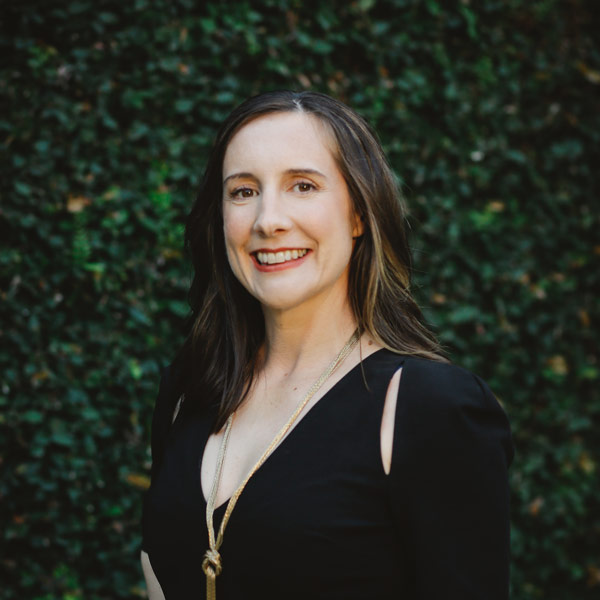
Ms Kara Frederick
Founder and Managing Partner
Tiger Financial Group
Kara is the Founder and Managing Partner of Tiger Financial Group (TFG), a leading financial services firm empowering Australian growth companies into global markets. Kara is also co-Founder & Managing Partner of Jekara Group, a private capital fund accelerating the global energy transition.
Kara has extensive international investment and capital markets experience. She previously led a $150M fintech fund and spent a decade on Wall Street and Silicon Valley, including with Goldman Sachs Capital Partners.
Kara’s leadership roles also include being a Director of MGA Thermal (a leading Hunter-based long duration storage leader), a Member of the Governance Board of ATRaCE ($200M commitment to NSW-based cleantech start-ups) and as co-head of Princeton University’s Alumni Schools Committee, among others.
Kara spends her time in the Hunter and Sydney with her young family.
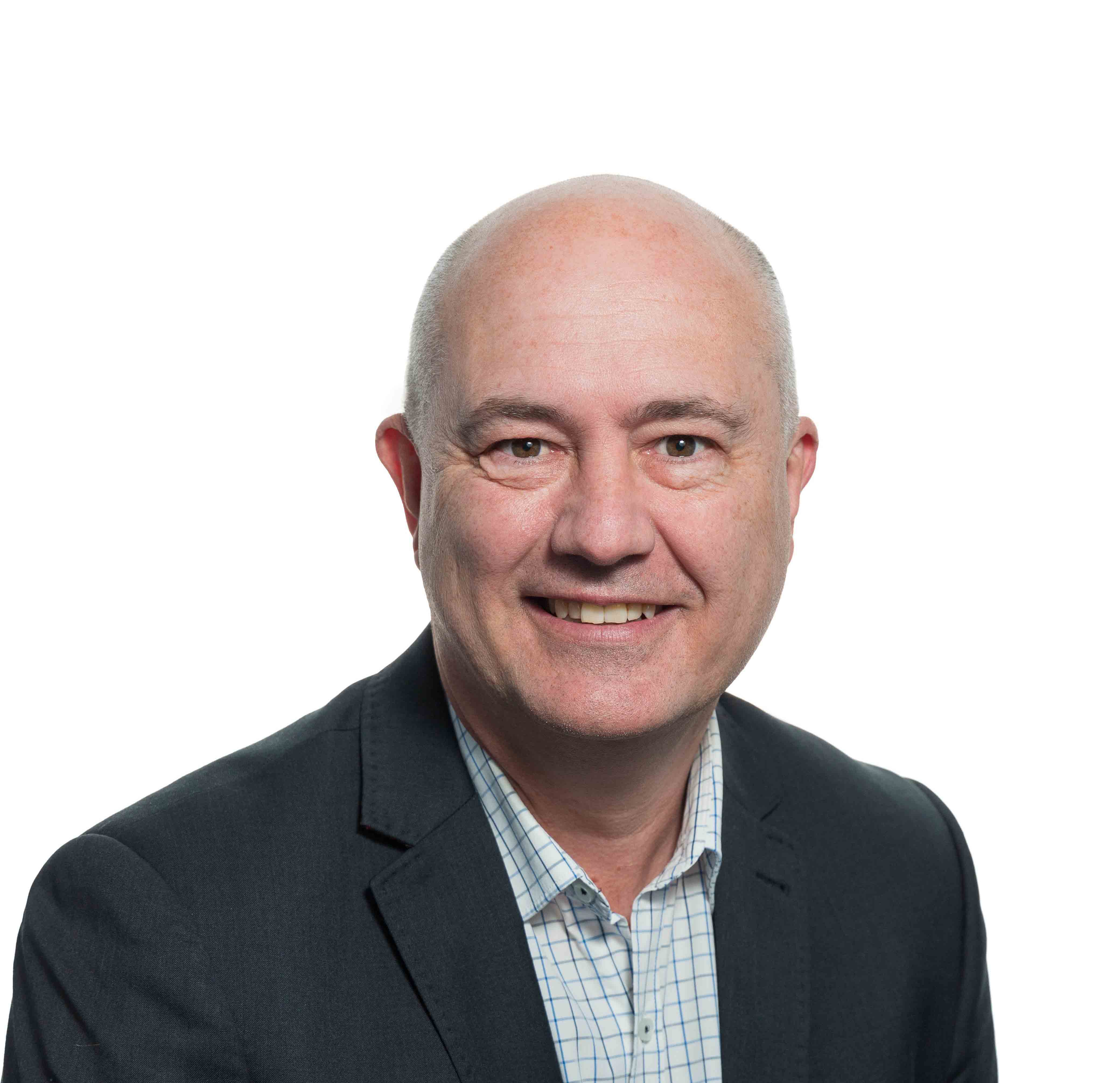
Dr Paul Ebert
Group Director – Sustainability & Energy Transition Leadership
Worley
Paul Ebert’s career has centred on energy technology and related business, markets, policy and value chain adjacencies. A mechanical engineer with a PhD in wind turbine aerodynamics, his early work was in the electrical utility sector in Australia where he focused on delivering what really were the first larger scale renewable energy projects, particularly their integration into grids and markets and the building of business case value around such. He has always gravitated to the emerging fringe of such businesses, including both technological and market development, with his work growing into global heavy industrial processes involving technologies at the heart of a broader energy transition, including energy storage, low-emission gases, synthetic fuels, variants on hydrogen, and carbon neutral and negative processes. He currently works as Global Director Sustainability & Energy Transition Leadership for the global engineering company Worley based in London, UK. He was Chair of the ARENA Advisory Panel for many years, and has sat on advisory boards for the CSIRO, ANU and the Net-Zero Australia consortium, and represented Worley at forums including the World Economic Forum and Energy Transitions Commission. He is a lead author on the From Ambition to Reality series between Worley and Princeton University and directs a bi-annual Summit at Princeton on infrastructure delivery.
Professor Zee Upton
Deputy Vice-Chancellor (Research & Innovation)
Office - DVC (Research and Innovation)
Professor Zee Upton, a biochemist by training, is the Deputy Vice-Chancellor (Research and Innovation) at the University of Newcastle. She has a significant record of research in skin, wounds and tissue repair, spanning many disciplinary boundaries.
Professor Upton was previously the Pro Vice-Chancellor of the College of Health, Medicine and Wellbeing at the University of Newcastle. Prior to joining the University, she spent 6 years in Singapore where she was the Executive Director of the Skin Research Institute of Singapore (SRIS), a tripartite research initiative between Nanyang Technological University, the National Health Group and the Agency for Science, Technology and Research (A*STAR), as well as the Executive Director of A*STAR Institute of Medical Biology.
In these roles she facilitated extensive collaboration with industry, many via the Wound Care Innovation for the Tropics Industry Alignment Pre-Positioning Program that she also established and led. Preceding this, Professor Upton spent 15 years at the Queensland University of Technology where she held senior management and leadership positions, as well as established the Wound Management Innovation Cooperative Research Centre, plus formed a start-up that ultimately listed on the Australian Stock Exchange.
- T: (02) 4921 7022
- E: zee.upton@newcastle.edu.au
Professor Alan Broadfoot
Director, NIER
Newcastle Institute for Energy and Resources
Professor Alan Broadfoot has been the Executive Director of the Newcastle Institute for Energy and Resources (NIER) at the University of Newcastle since 2010. At NIER, Alan leads an ambitious agenda linking industry and academia for transformational research in energy, resources, food, and water. Alan holds a Doctor of Philosophy, Master of Engineering and Bachelor of Electrical Engineering (Honours) from the University of Newcastle. Trained as an Electrical Engineer, Alan joined electrical design and manufacturing company, Ampcontrol in 1991 and held senior management positions, including Managing Director and CEO from 2005–2010. He is a Fellow of the Institution of Engineers Australia and was Chair of the Australian Industry Group Hunter Manufacturing Council from 2004 –2009. He is a Graduate of the Australian Institute of Company Directors, a Fellow of The Royal Society of NSW, Chair of the NSW Energy and Resources Knowledge Hub, Deputy Chair of the Hydrogen Taskforce, Board Director of The University of Newcastle Research Associates (TUNRA) and member of the NSW Decarbonisation Innovation Hub Advisory Board.
- T: (02) 4033 9000
- E: alan.broadfoot@newcastle.edu.au
Professor Craig Simmons
Pro Vice-Chancellor
College of Engineering, Science and Environment
Professor Craig T. Simmons FAA FTSE is a leading groundwater scientist, recognised for contributions to groundwater science, science leadership, education, and policy reform, working across the public and private sectors.
Craig was Foundation Director of the ARC National Centre for Groundwater Research and Training and Pro Vice-Chancellor Research at Flinders University. He was Executive Director for Mathematics, Physics, Chemistry and Earth Sciences at ARC.
Craig is Pro Vice-Chancellor of the College of Engineering, Science and Environment at the University of Newcastle where he provides executive leadership to the Schools of Architecture and Built Environment; Engineering; Environmental and Life Sciences; Information and Physical Sciences; and Psychological Sciences.
Craig is a Fellow of the Australian Academy of Science, Australian Academy of Technology and Engineering and American Geophysical Union. He has received awards including the Australian Academy of Science’s Anton Hales Medal for distinguished contributions to research in the Earth Sciences, South Australian Scientist of the Year, Australian Water Professional of the Year, Australian Award for University Teaching, and International Association of Hydrogeologists Presidents’ Award. He is a lead author of the United Nations World Water Development Report “Groundwater: Making the Invisible Visible” and coauthor of the IPCC Sixth Assessment Report.
The University of Newcastle acknowledges the traditional custodians of the lands within our footprint areas: Awabakal, Darkinjung, Biripai, Worimi, Wonnarua, and Eora Nations. We also pay respect to the wisdom of our Elders past and present.
